HISTORY
HISTORY
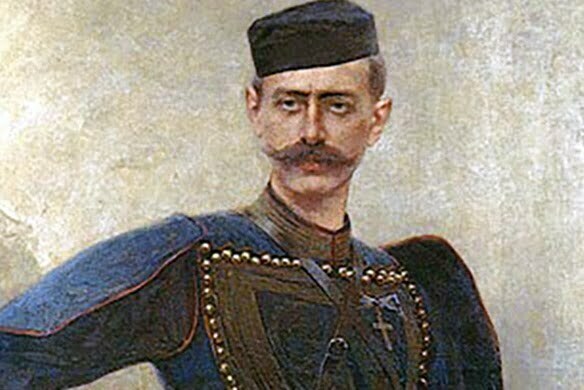
Born on March 29, 1870 in Marseilles, the son of the merchant Michael Melas, Pavlos Melas inextricably linked his name with the Macedonian Struggle.
In 1886, at the age of 16, he entered the Hellenic Army Academy “Evelpidon” and graduated as an Artillery Lieutenant on August 8, 1891. The following year he married Natalia Dragoumi, with whom he had two children, the soldier Michael Mela and the chemist Zoe Mela – Ioannidi.
Pavlos Melas was an active member of the secret organization “National Society”, which had, as its ultimate goal, the revival of the morale of the country and the liberation of the enslaved Greeks with every sacrifice. With the outbreak of the war, he fought on the fronts of Thessalia as Platoon Commander of the 2nd Infantry Artillery.
Also read: September 23, 1821 | The fall of Tripoli and the consolidation of the Revolution
Specifically, Pavlos Melas was sure of the Victory of the Hellenic Army since in a letter to his family, he states: “… If our god helps us, you will soon receive my letter from Thessaloniki. So courage, my dear parents, courage and conviction; because even if the devil causes our defeat, we will be defeated fighting…”
Later, the situation he finds himself in disappoints and disgusts him, something that is evident in a new letter to his family: “The idiots shouting against him ( the successor Constantine) had to be in Larissa the day after tomorrow, our disgraceful, disgraceful, disgraceful flight, to see the state of the army and realize if it was possible to make a step forward with it…”
Since the beginning of the 20th century, he has been intensely concerned about the situation in Turkish-occupied Macedonia. He is deeply concerned about the actions of the komitatzids, who seek the annexation of Macedonia to Bulgaria.
In February 1904, along with three other officers, Sergeants Alexandros Kontoulis and Anastasios Papoulas and Second Lieutenant Georgios Kolokotronis, he participated in a secret mission in Macedonia codenamed “Mikis Zezas” (Mikis, from the name of his son Mikis, and Zezas, from the name of his daughter Zoe, whom he affectionately called Zeza), at the behest of the Theotoki government.
The four Officers, accompanied by Macedonian fighters, were active in western Macedonia, but their actions were noticed by the Turks, who demanded their withdrawal from the Greek government. So, along with the three other officers Melas returned to Athens on March 29.
Also read: Marinos Mitralexis | The Greek aviator who rammed an Italian aircraft
In July, while serving at the Hellenic Military Academy “Evelpidon”, he asked for a 20-day leave to make a second trip to Macedonia. He traveled with a fake passport under the name Petros Dedes and declared himself a cattle dealer. Upon his arrival in Kozani, he met with the local Greek element and decided to form an armed corps by recruiting men from the surrounding areas and to take immediate action in Western Macedonia. On August 3, he returned to Athens full of optimism for the outcome of the Struggle.
After 15 days, he asked to receive a four-month leave from the army to officially take over the leadership of the Macedonian Struggle in the area of Kastoria and the Monastery, at the suggestion of the Macedonian Committee. Shortly before he left, he confessed to his wife: “… I feel very, very unhappy, my happiness I leave; I feel that with all my anxious and nervous character, the life that suits me best is the quiet family life. But I no longer know what I suffer; I have become an instrument of great power, as it seems, since it has the power to silence all my other feelings and to constantly push me towards Macedonia.”
And from Larissa he added a new letter to his wife, as if he was anticipating his end: “… I undertake this struggle with all my soul and with the idea that I am obliged to undertake it. I also had the firm belief that we could work in Macedonia and save many things. I have this conviction, and I have a supreme duty to sacrifice everything as I convince the Government and the public opinion about it…”
On August 28, Captain Mikis Zezas (Pavlos Melas) crossed the border, accompanied by several Macedonians, Laconians and Cretans, and in mid-September encamped in the area of Kastoria.
On October 13, 1904 he entered the village of Statista to rest with his men. However, the Bulgarian prime minister Mitros Vlachos, in order to get him out of the way, notified the Ottoman authorities. A strong military detachment, consisting of 150 men, arrived on the spot and in the ensuing clash, Pavlos Melas was seriously injured in the lumbar region and after half an hour he breathed his last breath.
His head was cut off by his comrades-in-arms and was buried in the church of Agia Paraskevi in Pisoderi. His body was handed over by the Ottoman authorities to the Metropolitan of Kastoria Germanos (Karavangelis) and was buried in the Byzantine church of Taxiarches in Kastoria, where he has been resting since 1950. His wife Natalia was also buried in the same church at her request.
The death of Pavlos Melas became known in Athens on October 18, shocking public opinion, due to his integrity and pure character, but also because of the well-known name of his family that had great ties with Macedonia and the society of Athens. However, his sacrifice marked the actual beginning of the Macedonian Struggle, which culminated in the Balkan Wars of 1912-1913.
With information from: sansimera.gr
Also read: “Hymn to Freedom” | From Dionysios Solomos to the besieged of Messolonghi and across the Nation
NEWSLETTER SUBSCRIPTION
Memorial Speech by the Minister of Defence Vassilis Palmas at the annual memorial service for the fallen of the 3rd Company of the 211th Infantry Battalion
The Minister of Defence of the Republic of Cyprus, Mr. Vassilis Palmas, attended the annual commemoration of the fallen of the 3rd…
120 years since the death of Pavlos Melas—The Hero of the Macedonian Struggle—Photos
The Armed Forces honor the memory of the ethnic martyr who gave his life for the liberation of Macedonia…
80 years since the Battle of Rimini – The Brigade that wrote golden pages of history
The “Rimini Brigade” wrote new pages of history for Greece, placing it in the camp of the winners. This success was linked to hope and…
USA | Approval for the Sale of Aerosonde Drones for Greece’s M1117
The State Department has approved the sale of Aerosonde unmanned aerial systems (UAS) to Greece for approximately $30 million, which will…
Denmark | Huge Increase in Defence Spending for Greenland
Denmark announced a huge increase in defence spending for Greenland. Danish Defence Minister Troels Lund Poulsen said…
Syria | Agreement on the Dissolution of Armed Organisations and their Subordination to the Ministry of Defence
Ahmed al-Sara, the Syrian president appointed by the Hayat Tahrir al-Sham organisation, has reached an agreement with the leaders of armed…
Reactions in Nicosia and Athens to the Upcoming Turkey-Syria Agreement on the Delimitation of the EEZ
As reported by Hurriyet’s English-language edition, Turkey is in advanced talks with the new Syrian leadership to establish…
MILTECH – IAI | Agreement for Cooperation in Greece’s New Anti-Aircraft “Dome”
MILTECH Hellas SA and Israel Aerospace Industries (IAI) signed today a cooperation agreement in the context of the implementation of the…
Losses for North Korea in Ukraine | 1,100 soldiers have been killed or wounded
North Korea’s losses in the Russia-Ukraine war are heavy, as more than 1,000 North Korean soldiers have been killed or injured…






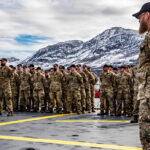

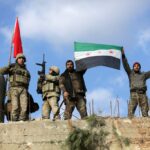
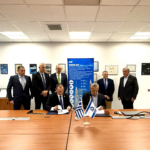

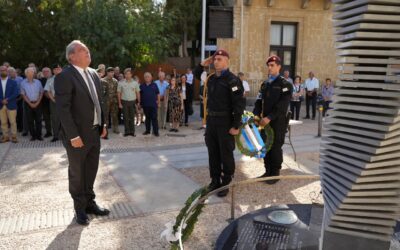
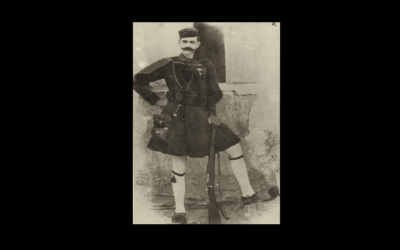
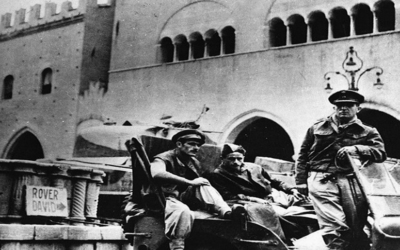
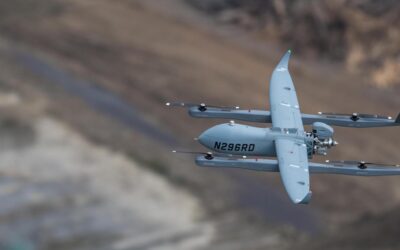
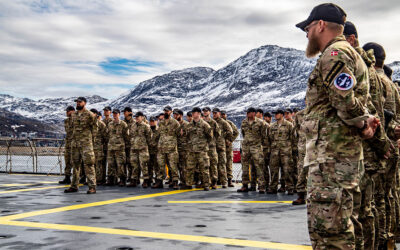
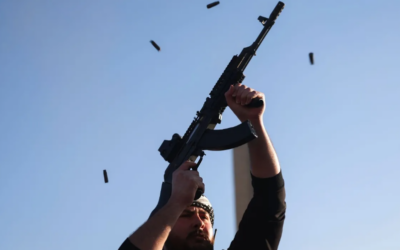
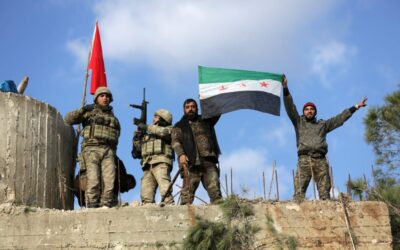
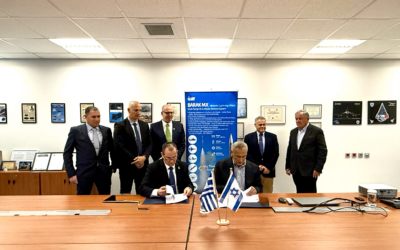
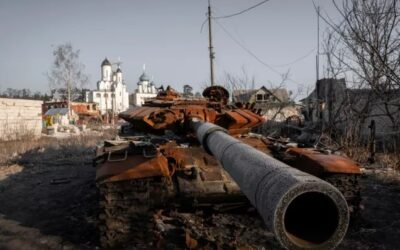
0 Comments